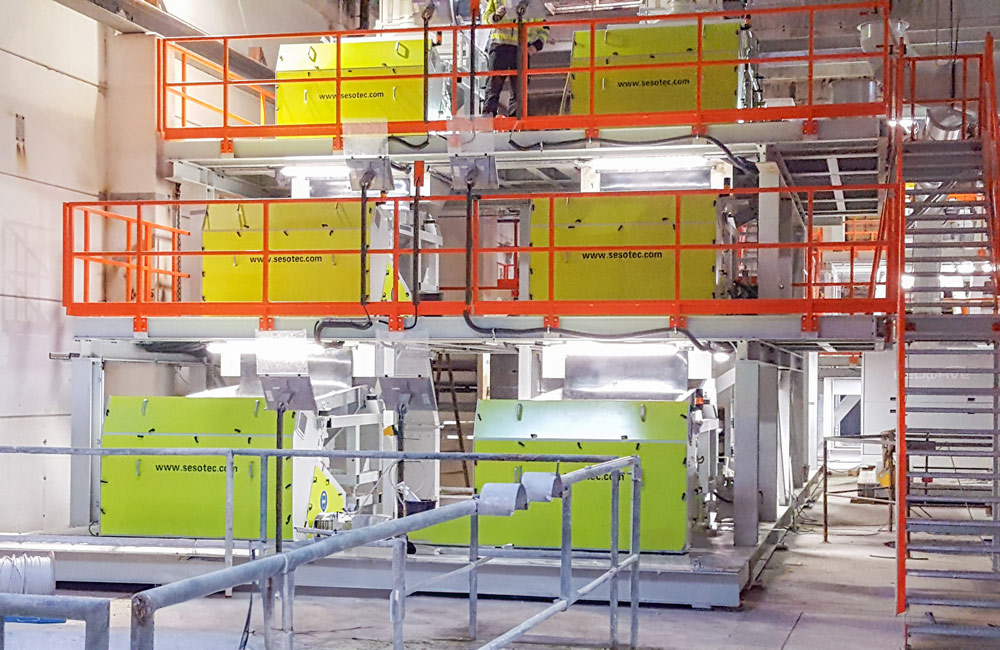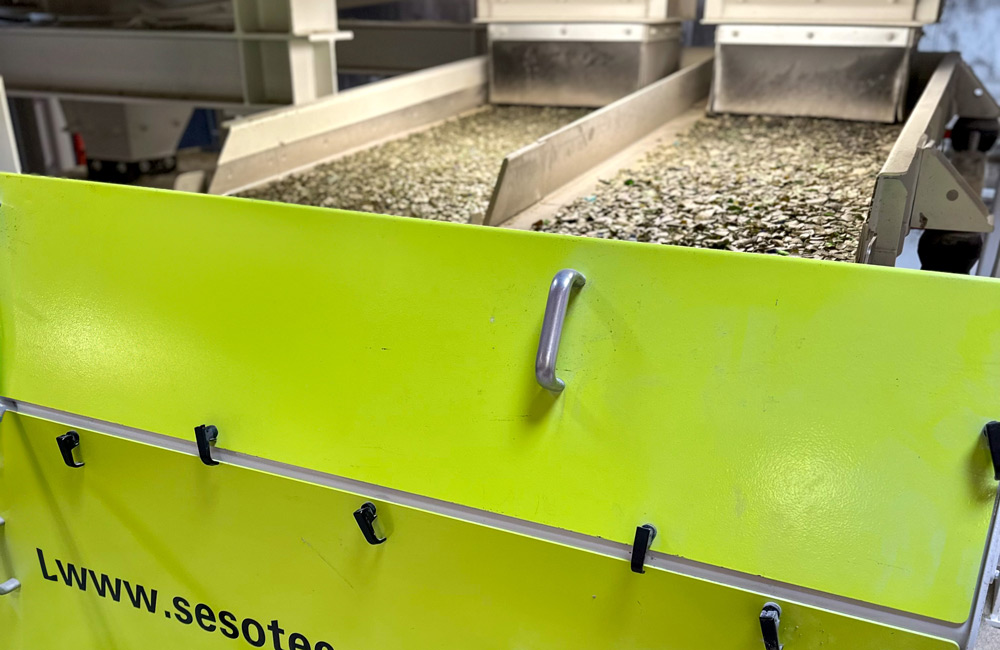Case Studies
04/07/2024 |
How Reiling brings valuable, dark cullet back into production

The family-run company operates at 13 German and six European locations. At its glass recycling sites in Germany, Denmark and Poland the Reiling Group processes a total of over 1 million tons of glass. The high-quality recyclate can then be reused in almost any melting application to create added value.
The problem: Valuable cullet of opaque, dark glass is lost in the sorting process
Glass, especially container glass, is an outstanding recyclable material that can be recycled as often as required. In addition to correct collection, the prerequisites for using used glass for the production of new goods are subsequent processing in special glass sorting plants, such as those operated by the Reiling Group.
At the Reiling sites, recycling processes are used that have been designed to remove impurities and for color sorting. With the proven separation of CSP (ceramics, stones, and porcelain), organics and color sorting, Reiling always strives to optimize the recycling processes in order to achive a closed cycle with the lowest material loss and the highest quality of secondary raw materials.
In 2015, Reiling set up the Danish recycling site in Naestved for processing hollow and flat glass. SPEKTRUM glass sorting systems from Sesotec are used in the plant. In a step-by-step recycling process, these sorting systems first reliably remove CSP and metals. In a further step, the glass cullet is sorted by color.

The result: clear, brown, and green glass of the highest quality, ready for use in the production of new glass bottles. Until now, the sorting of dark cullet was considered a particular challenge in the field of glass recycling. Conventional optical detection, which is used in glass recycling plants, is based on transmitted light. As soon as less light than required passes through a piece of cullet, a normal glass sorting system classifies it as opaque and therefore as a contaminant. Due to the thickness of the material and the strength of the coloring (special bottles) and the resulting opacity, this cullet can often not be distinguished from CSP. They are discharged together with the CSP contaminants. Valuable material is lost.
The solution: New sensor technology for detecting very dark glass
The milestone in material recovery was achieved through the development of a new sensor system for the Sesotec sorting systems, which now also enables the detection of dark, opaque glass pieces. The cullet is no longer viewed using normal transmitted light illumination only, but with additional special lighting plus sensor technology (C-C sensor).
Especially dark cullet can be distinguished just as reliably from CSP and can therefore remain in the material flow, as they are no longer – as was previously the case - unintentionally ejected with the CSP impurities. This proves to be an enormous advantage in glass recovery. The cullet, which is particularly heavy due to the thickness of the material, remains in the material cycle and can be used for the production of new goods. In this particular case, this has now been achieved with the latest technology in a line completely without glass drying.
The new sensor technology is also the reason why Reiling has invested in the latest Sesotec technology - SPEKTRUM glass sorting systems with a special C-C sensor for sorting dark glass cullet - in order to significantly improve glass recovery even further. In fact, Reiling was one of the first companies to use C-C sensor sorting in contaminated areas and has been very successful with it.
Sesotec partner KRS Recycling Systems was commissioned to expand the glass recycling plant at the Danish site. KRS handled the entire process of expanding the plant: from consulting and planning to installation, commissioning, service, and support.
The customer benefit: Optimized glass recovery with minimal losses
Reiling continuously invests in state-of-the-art plant technology and works to optimize its recycling processes - always striving to keep as much material as possible in the cycle. “Thanks to the new Sesotec technology, more valuable, dark cullet remains in the material cycle. The proportion of glass recovered is significantly increased once again and can be used to add value in high-quality melting applications. A benefit for both profitability and the environment,” says Benedikt Heitmann, Managing Director of Reiling Glas Recycling.
All in all, the new Sesotec C-C sensor technology is a major achievement for recycling companies, for the circular economy and, of course, also an economic factor if dark cullet can be used again in new glass production.





